
I was scheduled to go on a group tour of the Capital Jewish Museum on Thursday. Until two staff members of Israel’s embassy were gunned down outside of the museum the night before. Yaron Lischinsky, a researcher on the Middle East and North Africa, was 30. Sarah Lynn Milgrim, who worked in public diplomacy and peacebuilding, was 26.
After their deaths, Israel’s ambassador to the United States told reporters that Yaron was about to propose to Sarah. “The young man purchased a ring this week,” Amb. Yechiel Leiter said.
So many people and outlets have held onto that heartbreaking detail. Like The New York Times, which reported that Sarah’s parents did not know their daughter was about to be engaged until after her death.
Why did that detail matter so much? Because love is something we all believe in and search for, as though it’s a matter of survival, and theirs was supposed to last a lot longer than this.
Something was telling me to go to that last place that Yaron and Sarah saw together. So I chose to take a long walk to the museum, even though my tour had been rightfully canceled.

I didn’t know what I would feel or find as I walked to the museum. Unshowered. In a pair of ratty sneakers and a big green fleece. Nothing but my phone, airpods, and an umbrella in tote.
Not long into my walk came the sound of chanting and the sight of that familiar red, green, black, and white flag — often carried but never planted in the ground. “Stop the killing, stop the hate, Israel is a racist state,” the pro-Palestinian protesters intoned. One of the organizers arranged the group for photos, telling them, “Guys, no smiling.”
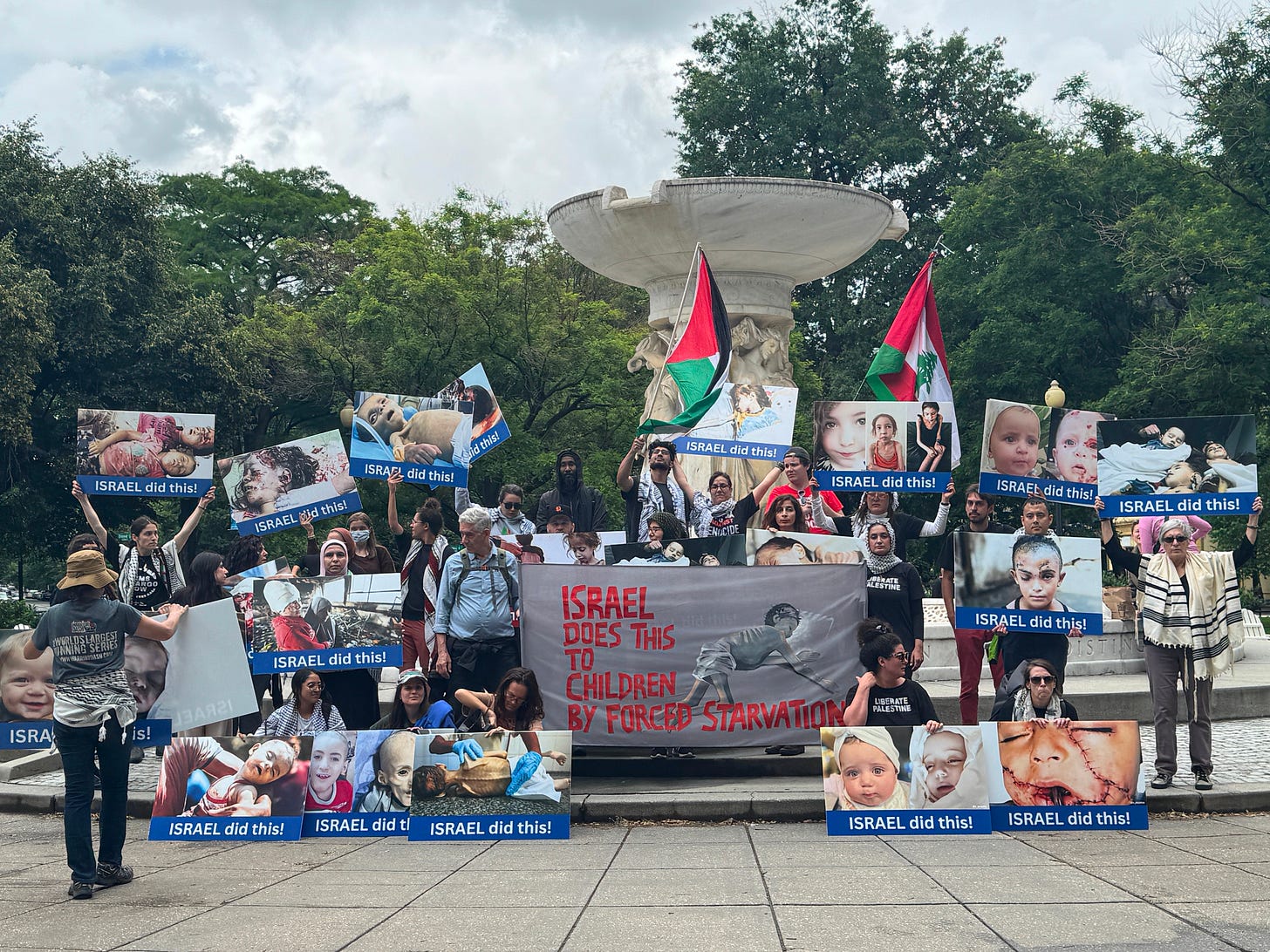
A raindrop fell on my nose like a tear drop as I kept walking. And the cars drove faster on the wider streets, with spritzes of rain hitting my face like spittle.
I walked through a vague scent of weed, so common nowadays in the nation’s capital. I walked by an empty building where, years ago, I had earned my Master’s in writing, learning to channel intentions on the page. I walked by the office where I had become a TV reporter, learned to stifle my emotions as the camera rolled.
I passed Latino city workers planting flowers in pots on corners. A hand-painted piano, and a homeless man who smiled and waved at me as I played some of the keys in the rain.
Suddenly it was pouring, and I stood under an awning for a few minutes and then kept walking. By the time I hit a Chinese community church, the sun was shining. I had to squint because I had brought an umbrella and not sunglasses.
Now I was close to the museum. The first signs being a smattering of TV crews and police cars.
“He had just purchased an engagement ring,” one reporter was saying into a camera. “He had just purchased an engagement ring. He had just purchased an engagement ring.” He kept saying it in different octaves for his package. A strange soundtrack for the sidewalk.
“That’s the end of their love story,” another reporter announced.
Four bouquets had been placed on stairs leading up to the museum, which was closed to the public and had law enforcement sitting inside. Some visitors had written messages on pieces of paper, putting it over the nearby shrubbery. And the wind was kind enough not to summon the notes away quite yet. “Yaron and Sarah, we will remember you with love,” someone had written.
I drifted over to a young man with earphones and a yarmulke. He stood still and silent, until journalists approached him for quotes which he declined. He seemed to just be taking in the moment, not trying to document or opine or socialize.
It felt right to be near him, as the tears for this couple came up in me. I let myself cry for them and their unfair fate. They should not have had to die because someone despised Benjamin Netanyahu’s conduct in Gaza.
And then, quite honestly, my grief for them was overtaken by my grief for a person who I loved and lost — yesterday marking a full season without him. I have hidden it well. The nights of taking NyQuil to end the days, the loss of appetite that turned me into a two-digit number on the scale.
I thought I could write myself free. That the tick of time would ease the ache. But the sadness comes in weird places and when I look up at the moon, which we took photos of and sent to each other. It always brought me comfort to know that no matter where we were in the world, living out our life purposes, we could be looking at the same point and holding each other in mind. I lost that, without a gunman’s ploys.
“Did you write a note?” the young man asked me, drawing me out of my stratified mourning. “No,” I told him, wiping away the tears. And we spoke about Yaron and Sarah, as journalists worked to assemble a chronology of what really happened here and what it meant to the people who liked and loved them.
In the confusion of the attack, guests from the museum event which the couple had just attended showed kindness toward their killer, “calming him down, bringing him water, taking care of him. Little did we know that he was somebody who had executed people in cold blood,” one of the guests told the BBC.
On the sidewalk, a small group of Christians had gathered with signs and flags in support of Israel and Jews. One woman stood in solidarity while also telling me how unjust Israel’s blockade has been in Gaza. Two women from Atlanta, in D.C. on vacation, had chosen to come to this corner.
“We felt it was providential that we were here during this time and thought we better show up,” said Anna Beth Havenar, a member of the Light of Messiah Ministries. “I have mutual friends with Yaron, who was killed. So many friends are in deep grief and mourning.”

“Even though I’m not Jewish, it still feels personal,” her friend Mariah Charnock told me. “It feels like antisemitism is just getting worse and worse… It seems like the hatred talks louder than the love.”
Hina Akhtar, a woman from Pakistan, was standing alone by a crosswalk, holding a sign that said, “Being a Muslim, I stand against antisemitism and violence.” I walked up to her and she told me very simply, “I am against discrimination.”
Some thought it time to intellectualize the tragedy. The CEO of the Anti-Defamation League, Jonathan Greenblatt, spoke of corrosive ideologies at colleges and universities. He said Jewish people should not be scapegoated for something happening on the other side of the world.
FBI Director Kash Patel called the murders an act of terror and targeted antisemitic violence. President Donald Trump said it was “based obviously on antisemitism” and that “Hatred and Radicalism have no place in the USA.”
The lone actor is a chilling threat.
There will be important stories to read and watch about this incident. About accountability for the suspect and the treatment of Jewish people in the United States — as if the massacre at Pittsburgh’s Tree of Life synagogue, the deadliest antisemitic attack in American history, was not enough. It will also be important to assess whether this incident, and Jewish people in the country, become a vehicle for political agendas.
I am grateful that my fellow journalists will do that work. And I am sorry this story does not do justice to Yaron or Sarah, or the families they were forced to leave behind. But yesterday, I just wanted to walk. To stand around and think about who shows up to mourn, how people carry pain, and whether a loss of love and life can ever really be measured. I wanted to be a journalist feeling my own pain.
I didn’t have the time to walk all the way back across the city. So I headed to the DC metro — passing an immaculate coterie of flight attendants with Lufthansa pins and rolling luggage. They had assembled outside of their hotel, waiting, smiling, ready for another day.

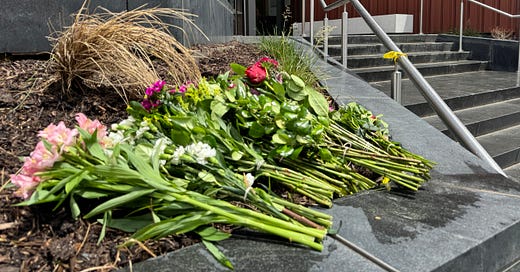

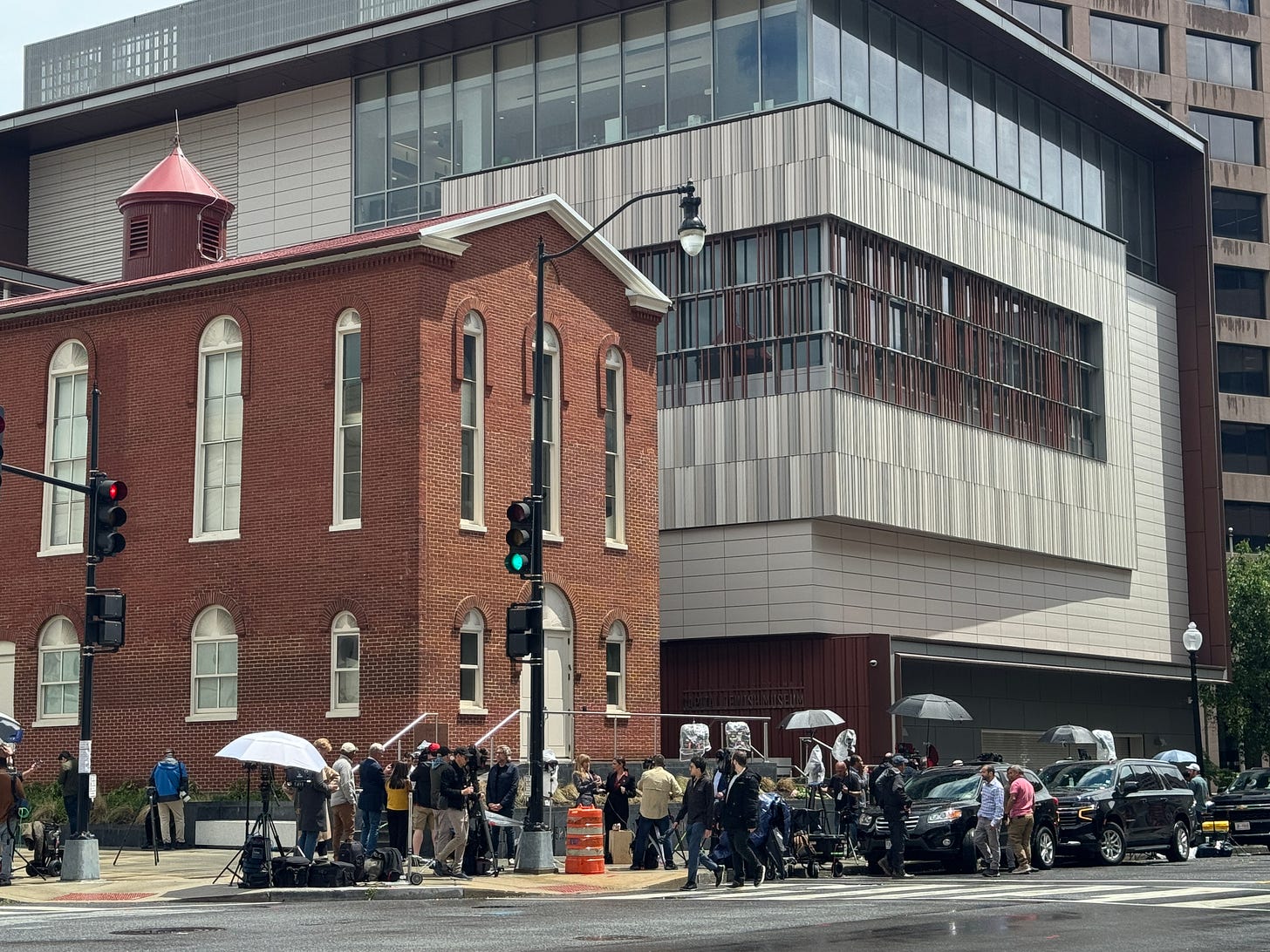
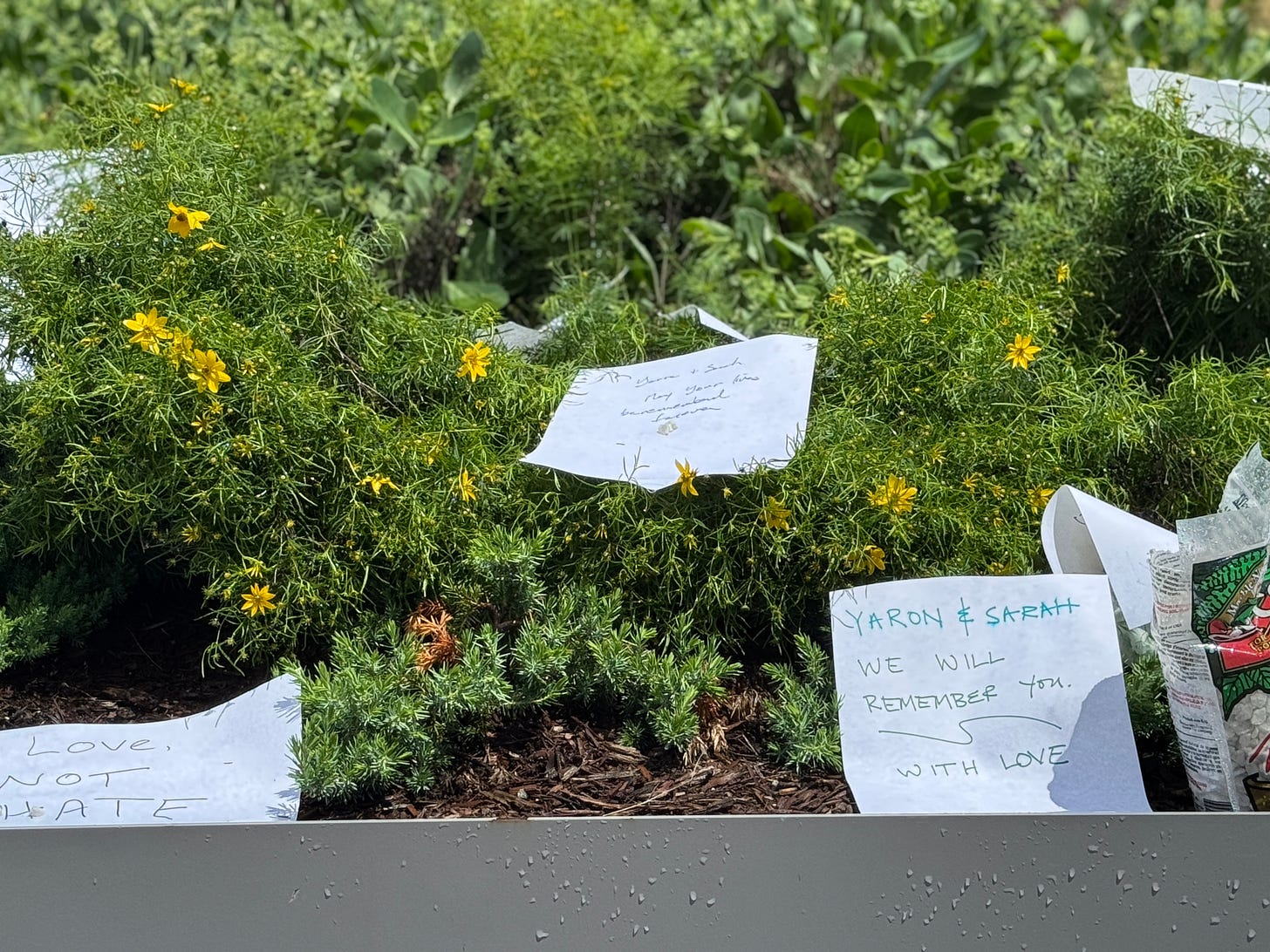
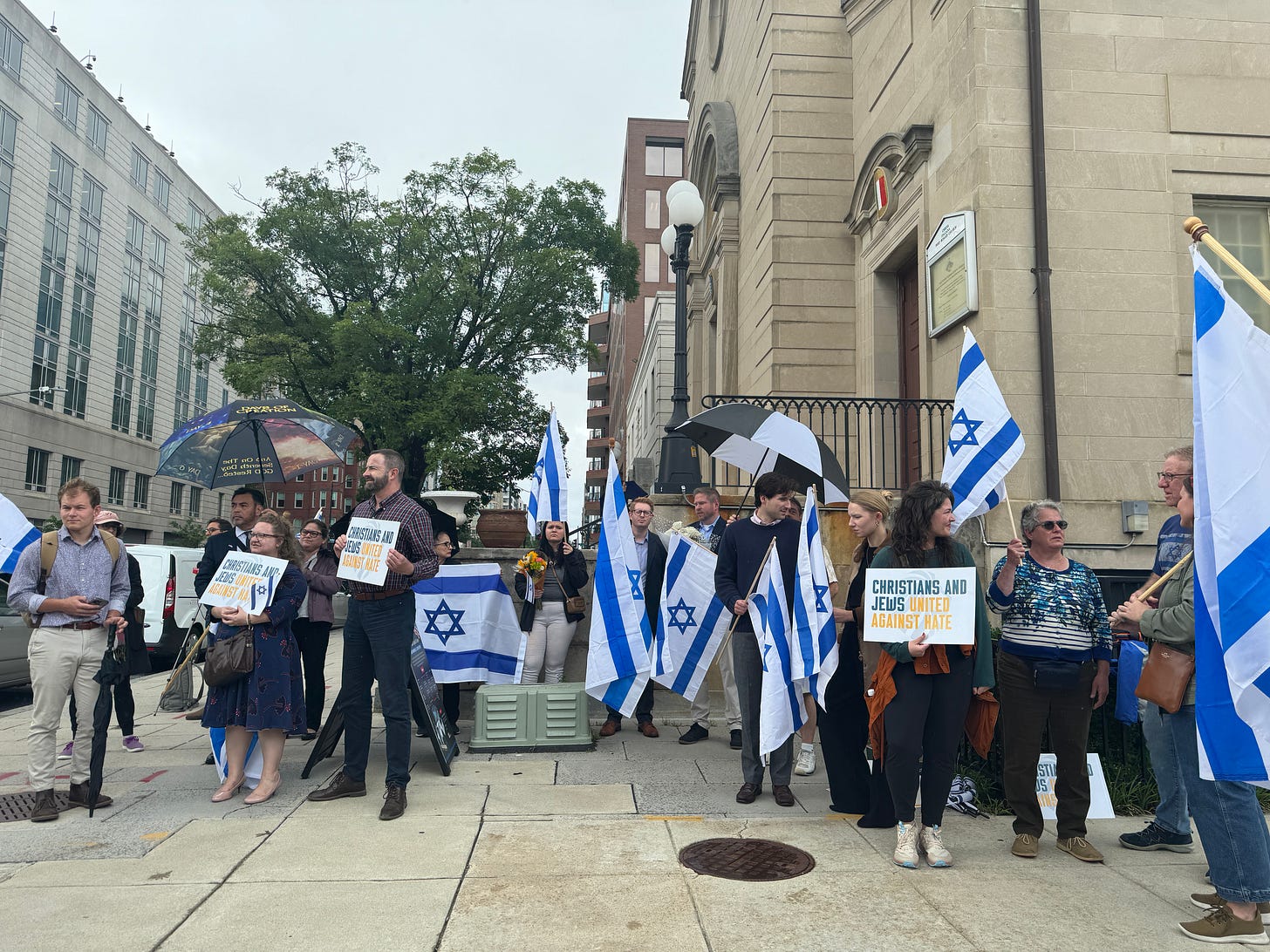
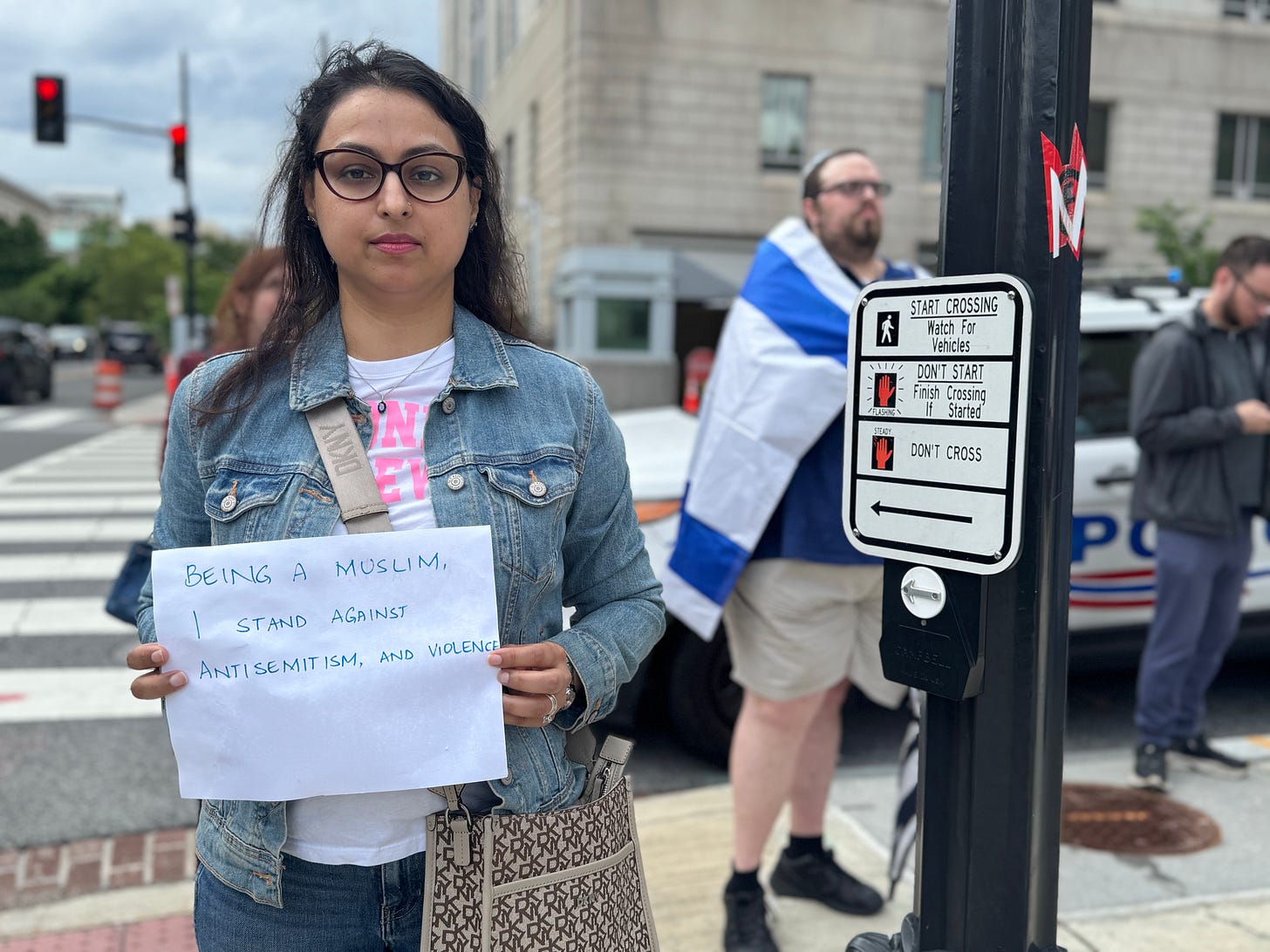
Such a tender essay. Thanks for sharing your experience in such a heartfelt way.
Beautiful and painful at the same time. Thank you for sharing your feelings.